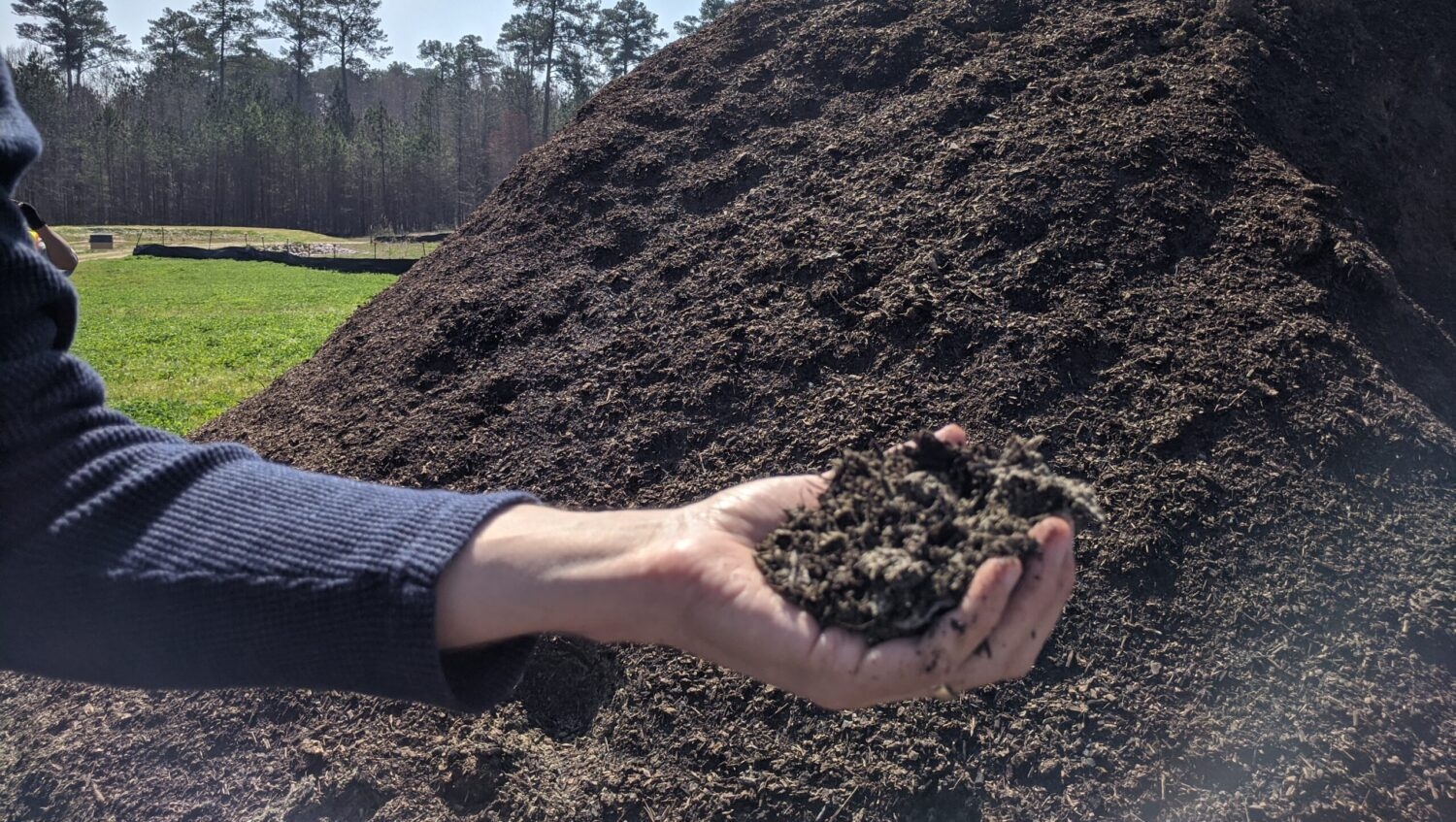Compost Facility and Research Cooperative
Closing the loop with organic waste management.
NC State’s Compost Facility and Research Cooperative reflects the university’s commitment to sustainability for operational efficiencies, student success, and academic research.
Located off of Lake Wheeler Road and nestled between NC State’s agriculture farms. It is permitted as a Large Type III facility by the NC Department of Environmental Quality and allows NC State to close the loop with organic waste management.
The Compost Facility’s 3-acre site can process up to 1,200 tons of organic waste annually and currently collects materials across campus including:
- NC State Dining Halls
- Zero Waste Workplace buildings
- Residence Hall Pizza Box Composting dumpsters
- Talley Student Union
- Carmichael Recreation Center
- JC Raulston Arboretum
- NC State Athletics Zero Waste Wolfpack events
- Howling Cow Creamery
- Special Events
This organic waste is then processed using an aerated static pile system to become a nutrient-rich soil amendment that is used in campus landscapes and at NC State’s Agroecology Education Farm, which grows 9,000 pounds of produce annually for NC State Dining. As compost collection expands on campus, additional processing capacity can be added to the facility in order to help NC State meet its 70% waste diversion goal as outlined in the 2017-2022 NC State Sustainability Strategic Plan. Take a tour of the facility through our virtual tour!
Benefits Beyond Waste Diversion
The Compost Facility & Research Cooperative provides a space for students, faculty, and community members to better understand the environmental benefits of composting by:

- Integrating professional development, leadership, and engagement with sustainability issues through
- Hands-on learning and leadership opportunities for student interns working at the site
- Student-led educational tours of the site, explaining how the closed-loop system works
- Providing a resource for on-site academic research to
- Integrate current faculty and graduate student research and in-classroom course curriculum
- Host the US Composting Council’s Compost Operations Training Course
- Incorporate NC Cooperative Extension annual training for Extension Agents from across the state


